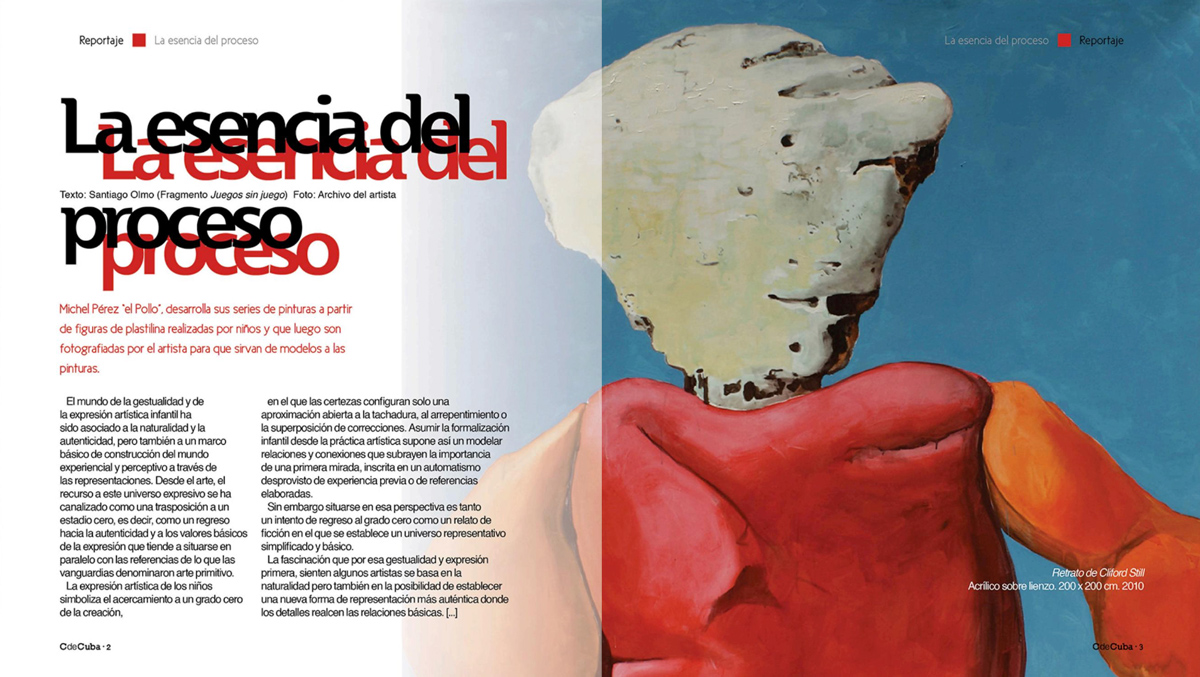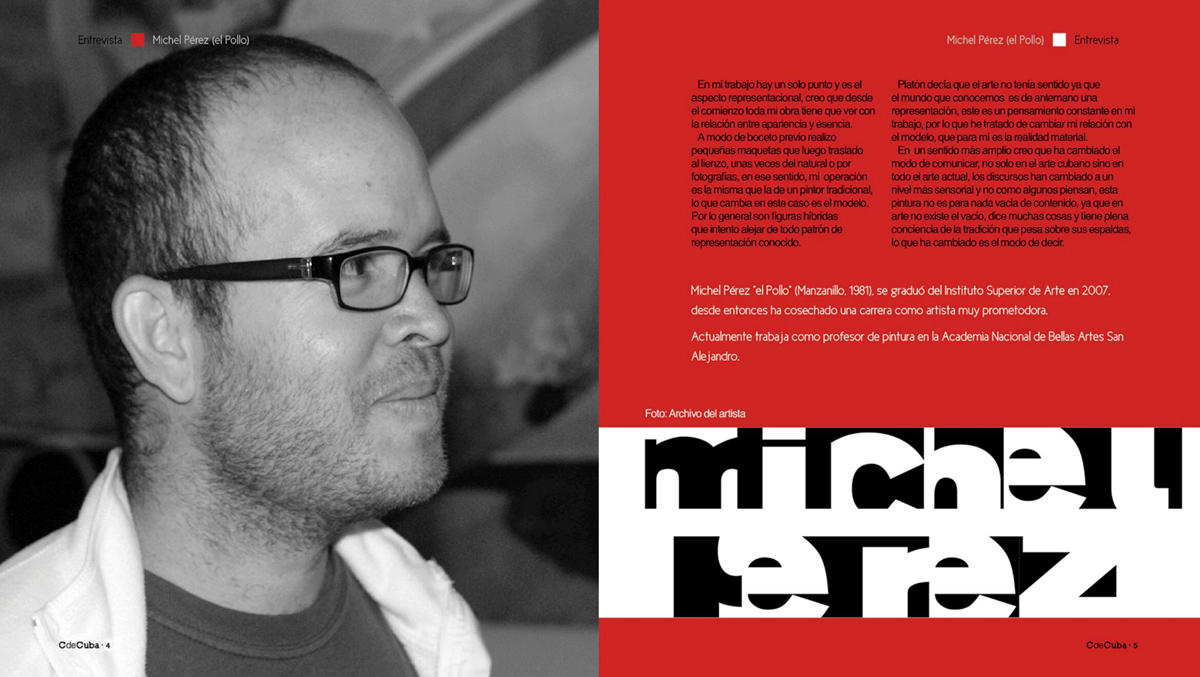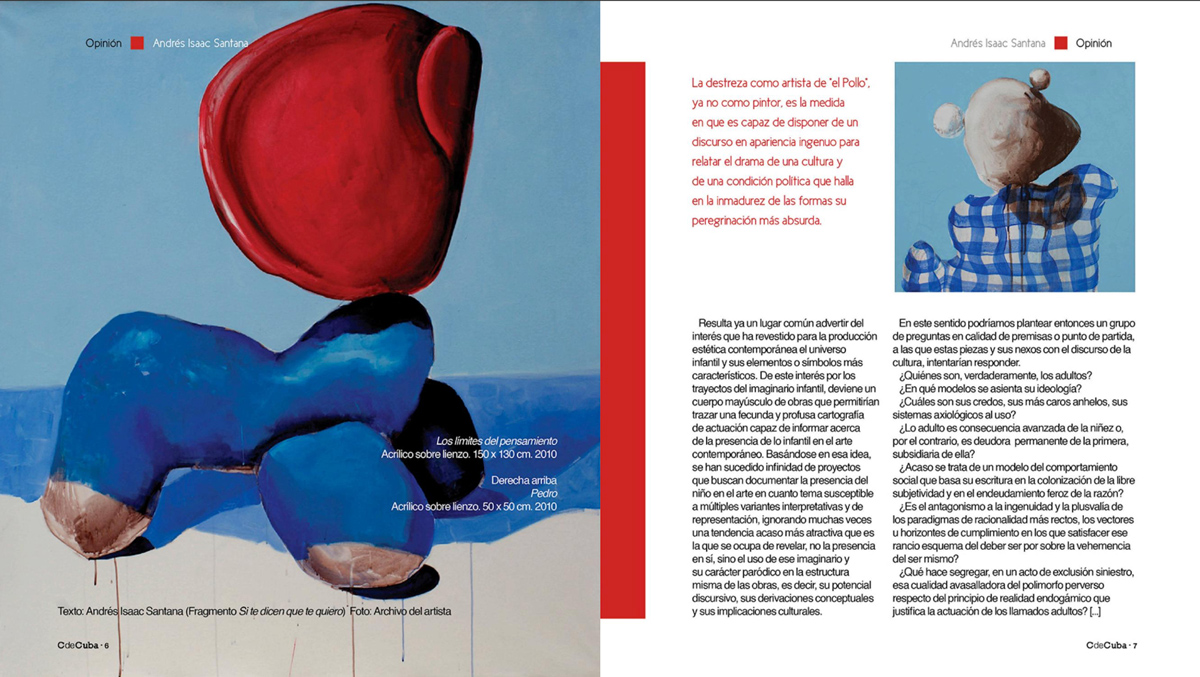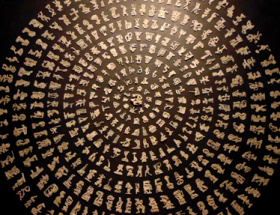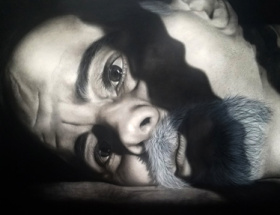If they tell you that I love you (I didn’t say that)
By Andrés Isaac Santana
It is already a commonplace to warn of the interest that the children’s universe and its most characteristic elements or symbols have had for contemporary aesthetic production. From this interest in the trajectories of the children’s imaginary comes a huge body of works that would make it possible to trace a fertile and profuse cartography of action capable of informing about the presence of children in contemporary art. Based on that idea, there have been countless projects that seek to document the presence of the child in art as a subject susceptible to multiple interpretative and representational variants, often ignoring a perhaps more attractive trend that deals with revealing, not the presence itself, but the use of that imaginary and its parodic character in the very structure of the works, that is, its discursive potential, its conceptual derivations and its cultural implications.
In this sense, we could then pose a group of questions as premises or starting point, to which these pieces and their links with the discourse of culture would try to answer. Who are adults really? On what models is their ideology based? What are their creeds, their dearest desires, their axiological systems in use? Is the adult an advanced consequence of childhood or, on the contrary, is it a permanent debtor of the former, subsidiary to it? Is it a model of social behavior that bases its writing on the colonization of free subjectivity and on the ferocious indebtedness of reason? Is it the antagonism to naivety and the surplus value of the most upright paradigms of rationality, the vectors or horizons of fulfillment in which to satisfy that rancid scheme of the duty to be over the vehemence of being itself? What does it do to segregate, in an act of sinister exclusion, that overwhelming quality of the perverse polymorph with respect to the principle of endogamous reality that justifies the actions of the so-called adults?
In the light of these interrogative digressions, I must warn that many of Michel Perez Pollo’s pieces sustain in their emphatic horizon a body of ideas whose dimensions neither resist nor are exhausted in the processes of aesthetic re-semantization of the infantile universe and its most external attributes, but amplify their stories and their axiological platform in the scenarios of a ¿revisionist? criticism of a certain adult perspective, too clinging to the precepts of an extreme rationalism that shields itself in the dishonest claudication of the affections. Many of his works mask the acidity of his approaches in the midst of a chromatic nobility that becomes a trap for the most mediocre reception. That which celebrates color as a synonym of joy or worships the abject as a handle of transgression. There is nothing naive in these pieces. On the contrary, the perverted insinuation abounds, the deaf cry, the limitless anxiety, the despair before something that one day was proposed to us as a model and that today turns out to be the coffin of all possible freedom. The works are turned into texts, into narratives that are woven between the illusion of freedom and the beginning of a reality that rises like a wall, that becomes a slap in the face of conscience, a mockery of decorum, a grimace of a full smile.
By virtue of these conjectures, then, it may be that the greatest interest of these works lies not in themselves, but in the way they relate to and question the cultural system that surrounds them and that serves as a stage for their proliferation of chained allegories. They are, therefore, images (the morphological order of these images does not matter too much), which manage to penetrate the collective unconscious with great depth and at the same time with great narrative simplicity. In some cases, these images may suggest a return to the past, associated with a certain playful attitude very typical of children; however, it is not this retrospective look (real or fictitious) what is most important in the case of a work like the one observed here. What is really interesting is the way in which these statements point to the order and ideology orchestrated by the adult world, managing to (de)schematize and (de)hierarchize the orthodox systems of reason and socially accepted behavior within the operating schemes.
I believe that it is there, and not where some pretend to notice it, where his skill as an artist, and not as a painter, lies, insofar as he is capable of using an apparently naive discourse to narrate the drama of a culture and of a political condition that finds in the immaturity of the forms its most absurd pilgrimage. Perhaps it is accidental that authoritarian systems engender the sclerosis of their own ideology as a result of their existential deterioration. This is by no means an accident of the system itself, but a sociological consequence that finds in the field of artistic speculation its counterpart and in that of childhood its most desired caricature.
This explains, in part, the sensibility of El Pollo’s work when his morphological digressions and speculations with the palette never neglect the ethical, sociological and aesthetic repercussions that result from his dialogue with the most immediate cultural profiles. His journey as a perverse polymorph remains as a trace of a moment within Cuban art that no longer exhausts its resources in the forge of martyrdom or the brabucona contestation, but in the desire to make art itself.
